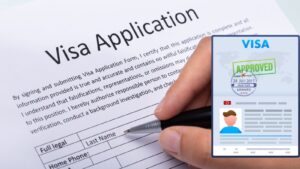Dreaming of a tropical paradise where you can live and work legally without renouncing your citizenship, the U.S. Virgin Islands (USVI) offers that rare opportunity. With its vibrant culture, breathtaking scenery, and legal ties to the United States, this Caribbean territory is an increasingly popular relocation destination—especially for U.S. citizens looking for a warm climate and a slower pace of life.
Living Tax-Free in the US Virgin Islands: What They Don’t Tell You About Act 60
But what does it mean to move there “legally” without changing citizenship? And is Virgin Islands citizenship even a real concept? Know every legal, financial, and lifestyle detail you need to know to make an informed decision and a smooth transition.
Understanding the U.S. Virgin Islands as a U.S. Territory
The U.S. Virgin Islands, consisting of St. Thomas, St. John, and St. Croix, are classified as an unincorporated territory of the United States. This means that while they are under U.S. sovereignty, they do not have the full constitutional rights of a state. However, U.S. federal law largely applies, and the U.S. dollar is the official currency.
Do US Citizens Need a Passport for the Virgin Islands
Residents of the Virgin Islands are U.S. citizens, and the territory has a non-voting delegate in the U.S. House of Representatives. While it has its own local government, including a governor and legislature, many key systems—such as immigration, federal taxation, and postal services—are governed by U.S. law. As a result, relocating there is often more legally straightforward than moving to a foreign country.
Who Can Move Virgin Islands Without Changing Citizenship?
Relocating to the U.S. Virgin Islands (USVI) does not always require a change in citizenship. Because the USVI is an unincorporated territory of the United States, the rules differ significantly depending on your immigration or citizenship status.
Here’s a more detailed breakdown of who is eligible to move without changing their nationality:
1. U.S. Citizens
Eligibility: Fully eligible to move without immigration restrictions.
As a U.S. citizen, you can relocate to the U.S. Virgin Islands just as easily as moving from one U.S. state to another. You are not subject to any customs or immigration procedures. You can establish residency, buy property, open a business, work locally, and even vote in local elections—although not in U.S. presidential elections from the USVI.
Additionally, U.S. citizens enjoy the same rights and protections under U.S. federal law while living in the USVI, although some tax and territorial laws may vary slightly. You do not need a passport to travel between the mainland and the Virgin Islands, though one may be required when traveling to nearby international destinations in the Caribbean.
2. Green Card Holders (Permanent Residents)
Eligibility: Eligible to move, but must maintain U.S. permanent residency.
If you hold a valid U.S. Green Card, you are permitted to live and work anywhere in the United States, including its territories like the U.S. Virgin Islands. There is no need for a separate visa or special documentation to establish residency in the USVI.
It is crucial to maintain your permanent resident status. That means spending the majority of your time within U.S. borders and not staying abroad for extended periods without proper re-entry permits. Relocating to the Virgin Islands can be a great option for Green Card holders seeking a tropical lifestyle while remaining within a U.S. jurisdiction. You’ll still be able to renew your Green Card and eventually apply for U.S. citizenship if desired.
3. Foreign Nationals (Non-U.S. Citizens Without Residency)
Eligibility: Not automatically eligible — must follow standard U.S. immigration processes.
Foreign nationals who do not already hold U.S. citizenship or permanent residency must undergo formal immigration steps to live in the U.S. Virgin Islands. Because the USVI is a U.S. territory, U.S. immigration law applies fully. That means you’ll need to secure a valid U.S. visa (such as a work visa, investor visa, or student visa), or pursue lawful permanent residency through sponsorship, employment, or investment.
Tourist visits are allowed under U.S. visitor visas or Visa Waiver Program (VWP) terms, but you cannot stay long-term, work, or establish residency without proper documentation. Importantly, even if you relocate legally, your original citizenship remains unchanged unless you later choose to apply for naturalization through the U.S. immigration system.
How to Establish Legal Residency in the Virgin Islands
Establishing legal residency in the U.S. Virgin Islands is a essential step for those who want to live in the territory long-term, take advantage of local tax benefits, or qualify for public services. Residency is defined not just by physically living in the islands, but by taking clear legal and financial steps that tie you to the local community.
One of the key criteria for being considered a resident—especially for tax purposes—is spending at least 183 days per calendar year in the Virgin Islands.
Below is a detailed guide on how to officially establish residency:
1. Obtain Permanent Housing
To begin the residency process, you must have a permanent, long-term home in the Virgin Islands. This can be in the form of renting an apartment, leasing a house, or purchasing property.
- Rental Agreements: Make sure your lease is in your name and clearly outlines the duration of your stay (preferably 12 months or longer). Monthly Airbnb or vacation stays typically do not count as proof of legal residency.
- Home Ownership: If purchasing property, retain copies of your deed, mortgage records, or closing documents as proof of your long-term intent.
- Utility Setup: Once you have housing, ensure that utility services (electricity, water, internet) are registered in your name and linked to your new address.
Having documented housing is a foundational requirement for proving physical and legal presence in the territory.
2. Update Personal Records
To demonstrate a clear intent to reside in the Virgin Islands, you should update your official identification and voter records to reflect your new address.
- Driver’s License or State ID: Apply for a Virgin Islands driver’s license within 90 days of moving. This is one of the strongest indicators of legal residency.
- Voter Registration: If you are a U.S. citizen, update your voter registration with the Virgin Islands Election System. This not only affirms your residency but also gives you the right to vote in local elections.
- Health Insurance, Banks, and Schools: Inform your health insurance provider, educational institutions, and banks of your new address to further support your legal residency claim.
These updates serve as proof that you now consider the Virgin Islands your primary home.
3. Change Mailing Address
Changing your mailing address to a Virgin Islands address is another step toward showing your physical and legal connection to the territory.
- U.S. Postal Service (USPS): Submit a Change of Address form to forward mail from your old address to your new local address in the Virgin Islands.
- Banks and Financial Institutions: Update your address on file with banks, investment accounts, and credit card companies.
- Government Agencies: Notify the IRS, Social Security Administration, and other federal or state agencies of your new Virgin Islands address.
This administrative step helps ensure that all official communications and documentation reflect your new place of residence.
4. Work Locally or Remotely
To establish and maintain residency, you must demonstrate that you are economically active in the Virgin Islands—either through local employment or remote work.
- Local Employment: Apply for jobs in the territory and obtain a work contract or offer letter. Your employer should be registered in the Virgin Islands.
- Remote Work: If you work remotely for mainland clients or companies, you can still qualify for residency as long as your physical presence remains in the Virgin Islands. Keep records of your work arrangements, income, and business registration (if self-employed).
- Business Ownership: Entrepreneurs can register a local LLC or corporation with the Virgin Islands Division of Corporations and Trademarks, which helps reinforce their ties to the territory.
Being employed or self-employed locally not only boosts your residency claim but may also help you qualify for economic development tax incentives.
5. File Taxes in the Territory
Tax residency is a vital component of legal residency, especially if you plan to benefit from the Virgin Islands’ unique tax system. To qualify, you must file all applicable taxes with the Virgin Islands Bureau of Internal Revenue (VIBIR) rather than the IRS.
- 183-Day Rule: You must be physically present in the Virgin Islands for at least 183 days in the tax year to be considered a bona fide resident for tax purposes.
- File Local Returns: Submit your income tax returns to VIBIR. They use a modified version of the U.S. Internal Revenue Code, and your tax obligations are handled locally, not federally (as long as you qualify).
- Avoid Dual Filing: Once your residency is recognized, you will typically no longer file with the IRS (unless you have mainland income). Always consult with a tax advisor to ensure compliance.
- Economic Benefits: Tax residency may qualify you for the Economic Development Program (EDP), which can significantly reduce corporate and individual income taxes.
Maintaining consistent tax filings in the Virgin Islands is often the strongest legal evidence of your commitment to the territory.
Required Documentation for Residency in Virgin Islands
If planning to establish and maintain legal residency in the U.S. Virgin Islands, having the right documentation is not just helpful—it’s essential. These documents serve as legal proof of your physical presence, economic ties, and long-term intent to remain in the territory. They are commonly required when accessing government services, securing employment, applying for residency programs, or proving tax status.
Here’s a breakdown of the essential documentation needed to validate your Virgin Islands residency:
1. Lease Agreements or Property Deeds
Proof of a permanent residence is one of the most important components of establishing legal residency.
- Lease Agreements: A signed, long-term lease (typically 12 months or more) in your name provides clear evidence of your intent to reside in the territory. Month-to-month leases may be acceptable but are less ideal when proving long-term commitment.
- Property Deeds: If you own your home, your name should appear on the property deed or mortgage documents. These records reinforce the permanence of your residence.
- Supplemental Evidence: Supporting documents such as homeowners’ insurance, rent receipts, and housing association membership letters can further strengthen your claim.
Maintaining updated and legally binding housing documentation is a cornerstone for proving both presence and intent.
2. Utility Bills
Utility bills are powerful evidence of ongoing, day-to-day life in the Virgin Islands.
- Accepted Utilities: Electric, water, gas, waste management, and internet bills are commonly used. These should be in your name and tied to your residential address in the Virgin Islands.
- Billing History: Keep several months’ worth of bills to demonstrate continuity of residence—not just a temporary stay.
- Digital vs. Paper: Whether printed or online, ensure you keep copies of each billing statement in an organized folder for easy access during audits or application processes.
These bills help establish that you are living actively and consistently in the territory, not just visiting.
3. Virgin Islands Driver’s License or Local ID
Acquiring a local driver’s license or government-issued ID is not only a legal necessity—it’s also one of the most convincing ways to show permanent residency.
- Timely Application: You are typically expected to apply for a local license within 90 days of moving to the Virgin Islands.
- Documentation Needed: To apply, you’ll need proof of residency (lease or utility bills), your current driver’s license, birth certificate or passport, and in some cases, proof of Social Security.
- Why It Matters: A Virgin Islands ID is often required when applying for jobs, opening bank accounts, enrolling children in school, or accessing public healthcare and services.
This government-issued ID confirms your residential status with official recognition from local authorities.
4. Employment or Business Ownership Records
Being economically active in the Virgin Islands is a significant factor in proving residency and qualifying for local tax obligations and benefits.
- Employment Contracts: Provide a copy of your signed work agreement with a local business or government agency.
- Pay Stubs and W-2s: Keep regular payroll records to show that your income is tied to the territory.
- Business Licenses: If you’re self-employed or own a business, submit your Virgin Islands business registration, operating license, and local tax ID number.
- Remote Work Considerations: If working remotely, document where the work is performed from and that your primary residence is in the Virgin Islands.
Economic engagement in the territory strengthens your argument that you are a contributing, long-term resident.
5. Tax Records
One of the most important documents for long-term residency is your tax return filed with the Virgin Islands Bureau of Internal Revenue (VIBIR).
- Annual Filings: Submit your tax returns to the VIBIR, not the IRS, as long as you meet the 183-day residency rule and your income is sourced primarily from the territory.
- Proof of Filing: Maintain copies of your returns, W-2s or 1099s, and receipts of payment or refunds.
- Why It’s Important: Filing taxes locally confirms your legal status as a resident and qualifies you for local benefits and, in some cases, participation in special tax incentive programs.
- Professional Help: Many residents hire local tax professionals to ensure their filings are compliant with territorial rules, especially when transitioning from mainland filing.
These tax documents serve as both financial and legal confirmation that you are established within the Virgin Islands system.
Benefits of Moving Without Changing Citizenship in Virgin Islands
Here are the key advantages of relocating to the Virgin Islands while keeping your original nationality:
- Retain Your Citizenship: Whether you’re a U.S. citizen or a foreign national, you won’t have to renounce or alter your existing citizenship.
- Access to Federal Services: Social Security, Medicare, U.S. banking, and legal protections remain available to U.S. citizens.
- Freedom of Movement: U.S. citizens can travel between the mainland and Virgin Islands freely, without immigration control.
- Legal Protections: You’re still covered by the U.S. Constitution and federal legal systems.
- Tax and Business Incentives: Potential to reduce tax liability through local filing and economic development programs.
Tax Obligations and Economic Incentives
Living in the USVI has unique tax advantages. While the tax code closely follows the U.S. Internal Revenue Code, qualifying residents file taxes with the Virgin Islands Bureau of Internal Revenue (VIBIR). Key highlights include:
- No Double Taxation: You do not pay federal income taxes to the IRS if you qualify as a bona fide resident and meet local tax requirements.
- Economic Development Program (EDP): Businesses can receive up to 90% exemptions on corporate and personal income taxes for creating local jobs and investing in the territory.
- Capital Gains Incentives: Investors and entrepreneurs may benefit from favorable tax treatment on capital gains realized in the territory.
Careful tax planning is essential, especially for remote workers and investors with ties to the mainland.
Preparatory Checklist Before Relocating
Before making the move, here’s a step-by-step checklist to help you prepare:
- Visit the islands and explore neighborhoods
- Secure long-term housing or rental
- Find employment or ensure remote income
- Update IDs, bank addresses, and voter registration
- Apply for local licenses (driver’s license, business registration, etc.)
- Arrange insurance (health, home, auto)
- Notify the IRS, Social Security, and other agencies
A well-planned move ensures a smooth and legally sound transition to your new island home.
FAQs
1. Do I need a visa or passport to move to the US Virgin Islands as a U.S. citizen?
No. U.S. citizens can move to the U.S. Virgin Islands freely without a visa or passport. It’s considered a domestic relocation within U.S. territory.
2. Can I live and work in the US Virgin Islands without giving up my original citizenship?
Yes. As long as you’re a U.S. citizen or permanent resident, you can live and work in the USVI without altering your citizenship status.
3. What about non-U.S. citizens? Can they move to the US Virgin Islands without changing their nationality?
Foreign nationals can retain their original citizenship but must follow standard U.S. immigration laws, such as obtaining a visa, work permit, or permanent residency.
4. Can Green Card holders move to the US Virgin Islands?
Yes. Green Card holders (U.S. lawful permanent residents) can move to the Virgin Islands freely, just as they would within any U.S. state or territory.
5. Is it legal to establish residency in the US Virgin Islands without U.S. citizenship?
Yes, but only with proper legal status. Non-citizens must have a valid U.S. visa or permanent residency status to legally live in the USVI.
6. Will I lose my original nationality if I move to the US Virgin Islands?
No. Moving to the USVI does not affect your nationality. Citizenship changes only occur through formal naturalization, which is optional.
7. Are there any tax differences when relocating to the US Virgin Islands?
Yes. The USVI has its own tax code based on the U.S. Internal Revenue Code. You’ll file taxes with the Virgin Islands Bureau of Internal Revenue, not the IRS, if you become a bona fide resident.
8. Do I need to notify any government agency when moving to the US Virgin Islands?
U.S. citizens don’t need to notify immigration services, but it’s wise to update your address with the U.S. Postal Service, IRS, and state voter registration offices. Green Card holders must update their address with USCIS.
9. Can I buy property or start a business in the US Virgin Islands?
Yes. U.S. citizens and permanent residents can buy real estate and open businesses in the Virgin Islands without special permissions.
10. Can I return to the mainland U.S. after living in the Virgin Islands?
Absolutely. You can move back to any U.S. state at any time without restriction if you’re a U.S. citizen or Green Card holder.






